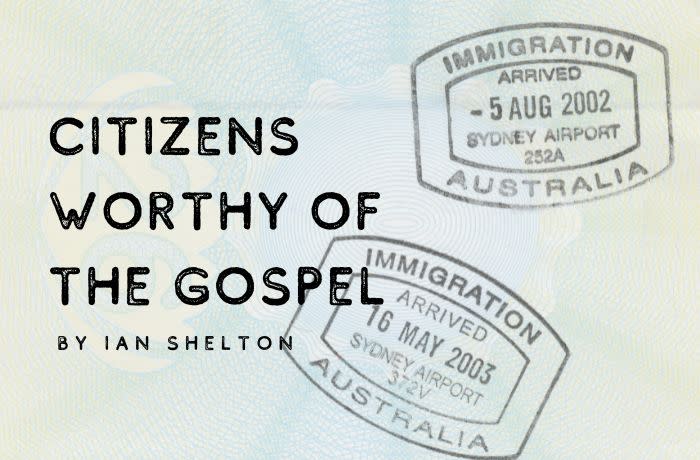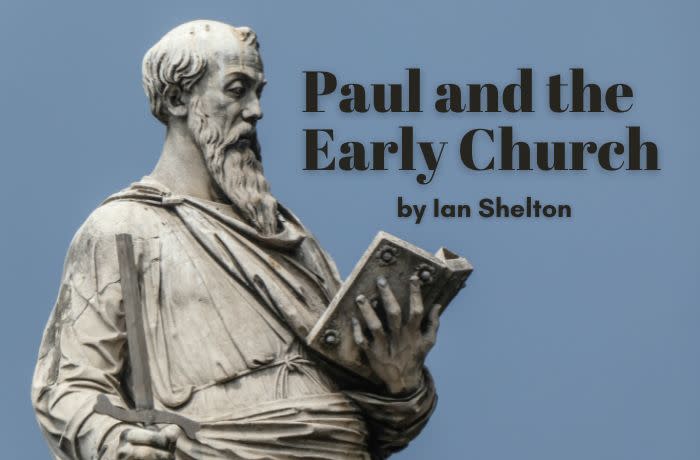Download our vision book
MA: Keith why have you chosen to write this book now and what are some of the key themes of the book we can unpack?
KF: The book comes out out of the last 17 years of my ministry which has been primarily mentoring Christian leaders and particularly Christian pastors across Australia from a wide range of denominations, networks, movements, different sizes and shapes of churches and ministry. One of the things that seemed to come up more than was comfortable was that pastors in particular are running out of emotional resources or experiencing what is now called burnout. I'd had a burnout experience myself 40 years ago and that prompted me to go deeper personally in order to be able to continue in ministry. Therefore I was prompted in writing the book to help leaders to be able to discern initial early signs of burnout, to understand why this phenomena might be happening and then to give an idea as to how to recuperate, how to heal from the burnout experience or emotional depletion.
The book morphed from being about burnout and emotional depletion into a recognition that it was a symptom of a deeper dilemma: that Christian leaders in Australia, particularly in local church ministries, lack adequate support mechanisms. They lack resources, including personal resources to be resilient in the kind of very demanding local church ministry expectations and models for today.
These models have changed a lot since I started ministry about 55 years ago where it was simply to be a pastor/teacher. Now the pastor needs to be a leader, a visionary, an entrepreneur, a motivator. I recently read a social science research project from America where they had concluded that local church pastoral ministry has the widest demand in terms of skill base of any occupation and that doesn't surprise me at all. I also came across a group of Christian researchers in social science, particularly psychology, who were working primarily with Macquarie University and the University of Western Sydney. They've carried out several research surveys of pastoral ministers in Australia over the last 10 or so years. A summary of the outcome is that the most significant positive factor for health and sustainability in ministry is that the pastor has an intimate, organic relationship with a loving gracious God and this is not only the central grounding and call but works for them from day today in terms of how they are able to stay well while being in a very demanding situation.
MA: It’s amazing you mentioning that the role of pastor, leading a congregation requires the widest skill set of any occupation. It’s no wonder that if that's the case, burnout is a common feature of that occupation. In your book you're seeking to give pastors the resilience to work within those demands. Are you also at the same time challenging the pre-suppositions behind these demands? Are there some systemic changes needed to improve ministry life?
KF: The answer is ‘definitely’. What we are seeking to do is to challenge the models of leadership that are present in contemporary Christianity in the western world because I think they have embraced too much secular thinking about leadership. For instance, anything that has to do with authoritarianism, bullying or working as an autocratic comes from the secular and non-Christian basis.
I find that any pastor I mentor is very much influenced by the models of leadership in their denomination or their network or movement. If the model is for instance the ‘anointed leader’ model of the Pentecostal movement, (which has added and enriched leadership in Australia in very positive ways) it can put an incredible pressure on leaders because if the blessing and meeting of the KPI's depends on God working through his spirit in me and the ministry is not growing, then what do I conclude? I conclude either His spirit isn't working in me strongly and/or I'm not a good leader. Therefore what leaders do is in colloquial terms pedal harder, go for it more, get more vision, more strategy, have a better plan. All this is good in and of itself but if it becomes the main game it becomes a master which is not only very difficult but is likely to take the best and the most committed people out for at least for a season through burnout or at some stage finding that what is expected in ministry is too hard. Therefore what I find is either leaders wake up one morning and say, “I don't want to do this anymore, it's too hard” or, “I can't do it any more. I need a break.”
MA: If there's a pendulum with character on one side and gifting/anointing on the other, do you think as a general rule in western Christianity we've swung too far towards elevating gifting/anointing as the key markers of Christian leadership to the detriment of godly character?
KF: Definitely. While recognising very clearly that anointing/gifting is an important part of discipleship and leadership, it seems to me that biblically and even in terms of efficacy, the most important foundation for discipleship and therefore for leadership is character formation. The character of the leader will always be more powerful than the giftedness in the medium and longer term. People will follow giftedness for a season but without character there tends to be at some stage a reckoning for leaders.
I’m encouraged by the fact that even in secular society today in nations like England their prime minister has basically needed to stand aside not because he's not a gifted, very intelligent, very able person but because his character is lacking.
I spent 25 years in theological education and towards the end of that time we realised that we placed adequate and important emphasis on scripture, in training on giftedness, training in leadership, preaching and in other important skills but we gave very little emphasis to who the person is and the formation of their faith and the formation of the Christian character. That was a profound deficiency but it's one that is not easily rectified. I'm in touch with people from quite a number of theological colleges and institutes and there is now more more adequate recognition that any equipping for ministry has to have as a foundational building block becoming a passionate follower of Jesus in whom the fruit of the Spirit, the character of God is mature and growing so there's an intimate, organic relationship. Intimate meaning that it's close and it's vital. Organic meaning that it's growing and it's it it's actually addressing the issues of every day life.
MA: For people in leadership at the moment whose training was perhaps devoid of that kind of focus who now find themselves in ministry and bumping up against the pressures of ministry life, what kind of things can leaders do now to develop the resilience that you say is required to finish well?
KF: I would be saying that there needs to be a personal relationship with God through Jesus that becomes a part of every moment of every day so that we live deeply in this connectedness through prayer, through openly accepting that in ourselves we can't manage this day effectively. I burnt out 40 years ago because I thought that my training and my natural capacities would get me through anything and they didn’t. I hit the wall and that led me to say, in a similar fashion to Paul when he got his thorn in the flesh, it was a blessing. It drove me deeper. It was a gift from God in order to allow me to rely on him more. In First Corinthians around chapter 7 Paul says that distress that drives us closer to God is actually a blessing.
The most important thing in life is the way Jesus calls us to be a disciple and what is important to him is the most important for us. For instance, we need to examine our values to make sure that they really are Christian values and that materialism, individualism or hedonism hasn't gradually crept in. Jesus was very clear when he said you can't serve two masters.
Something I bring out in the book is that there are lots of things that are actually okay in and of themselves providing they are stewarded well. They are not good masters, they are good servants. For instance, a resource such as money. There's nothing inherently evil or wrong about money but if it becomes your god then you're in deep trouble.
MA: Given that our culture is an individualistic culture and we tend to elevate or gravitate to the presidential style of leadership where it’s the gifted/anointed leader out the front who leads everybody else; do you think one of the structural things that could be looked at is a more collegial or pluralistic approach to church leadership?
KF: First of all, team is much more significant in leadership that our society actually emphasises. If you have a culture of truth and grace for instance in your team then that will allow much higher level constructive ministry and decision-making than if the culture is envious or power riddled or abusive. We haven't given enough emphasis to the belief that there is room for the calling of a leader of leaders. That role is quite different from what society presents it as. It's almost as if the best servant should be the leader of leaders. Biblically it's the person who is able to empower others and rejoices when others achieve or do things for God and his kingdom that they can't do. That kind of leadership, the servant, the foot washing leadership allows a person to function not in a hierarchy but as somebody who is leading in the key areas of empowering others for ministry.
I think if Jesus was writing to the western church he would say something like, “How did you get to where you are today from where I started you off? I know your heart is right. I know you want to be on the right track but how did you get where you are at the moment?” There's been so many subtle and sometimes not so subtle intrusions of a secular value system and way of leading
MA: Keith thank you for your time and wisdom. Thanks for the work that you've done around the nation over many years and thanks for the contribution you continue to make bringing this issue forward and seeking a godly solution.
KF: Thanks so much. I really enjoyed it.
Going Deeper to Go Further is available from https://acom.edu.au/product/going-deeper-to-go-further/



